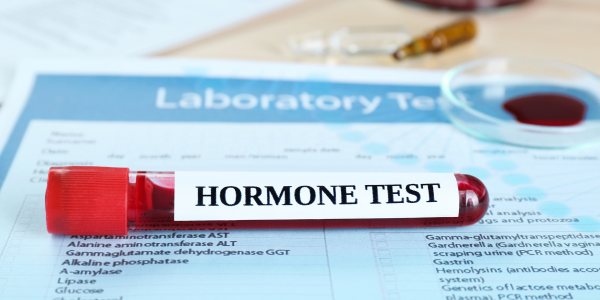

Sometimes you need some extra help losing excess weight and getting blood sugars under better control. Maybe you’ve been trying for years or maybe the post-baby weight won’t go away no matter what you do. That’s where medications like GLP-1 (glucagon-like peptide-1) agonists may be able to help.
GLP-1 agonist medications have gained popularity in mainstream media as a quick weight loss drug, but they are so much more than that! Besides helping with obesity and chronic conditions like diabetes and cardiovascular disease, did you know they also have anti-inflammatory and antioxidant properties too?. But what really are GLP-1 agonist medications? Let’s learn more about this class of medications.
What are GLP-1 Agonist Medications?
GLP-1 agonists, or glucagon-like peptide-1 receptor agonists, are a class of medications traditionally used for type 2 diabetes. But after extensive trials, they are also being used off-label for prediabetes and weight loss.
Common GLP-1 Agonist Medications for Blood Sugar Control and Weight Loss Include:
- Dulaglutide (Trulicity)
- Tirzepatide (Mounjaro)
- Semaglutide (Ozempic and Wegovy)
- Liraglutide (Sexenda and Victoza)
How GLP-1 Agonists Work
GLP-1 agonist medications mimic GLP-1, a peptide hormone produced in the GI tract. It stimulates the pancreas to make the right amount of insulin after meals and helps curb appetite by slowing down gastric emptying – so food stays in your stomach longer after eating. This supports healthy blood glucose levels and aids in healthy weight loss.
These medications are usually given once a week as injections under the skin, called subcutaneous injections. They can be given in any area with fat right under the surface of the skin, such as the back of the arms or belly.
Studies show GLP-1 agonist medications are safe and effective at promoting weight loss. Ozempic (semaglutide), resulted in 14.9% loss in body weight over a 68 week trial. This is two times more effective than other weight loss drugs on the market! Total fat mass also decreased while lean body mass increased.
Another GLP-1 agonist medication, Tirzepatide, improved insulin sensitivity and reduced hemoglobin A1C levels, a measurement of blood sugar control. Because of its ability to reduce insulin resistance, Tirzepatide provides significant benefits like weight loss, glucose control, and the improvement of metabolic health. Besides being a GLP-1 agonist, it is also a GIP (glucose dependent insulinotropic polypeptide), so it is actually a dual acting peptide.
Other benefits of weight loss medications like Semaglutide and Tirzepatide:
- Reduced waist circumference
- Decreased blood pressure
- Normalized blood sugar levels
- Decrease in C-reactive protein levels, a marker of inflammation
- Improved physical functioning
Common Side Effects of GLP-1 Medications
While GLP-1 agonist medications like Semaglutide and Tirzepatide are safe and no significant safety issues have been found with their use, they can come with side effects – especially at higher doses.
Some side effects of GLP-1 agonist medications include:
- Nausea
- Diarrhea
- Stomach cramps
- Constipation
- Increased heart rate
The mild gastrointestinal disturbances like nausea and stomach cramps are often associated with higher doses of GLP-1 agonist medications and might be related to slower gastric emptying. This is why it’s recommended to start on a lower dose and titrate up from there. It is also important to use the lowest dose possible that still works to control blood sugars and weight. To minimize gastrointestinal effects, it’s helpful to eat smaller meals throughout the day, drink plenty of water, and avoid lying down right after eating and 2 hours before bed to prevent acid reflux symptoms.
While considered safe and approved by the FDA, when initially studied GLP-1 agonist medications showed a possible increase in the risk of other conditions like cholelithiasis or gallstones, pancreatitis, kidney dysfunction, vision changes, and medullary thyroid carcinoma. This is why it is important to have a comprehensive laboratory evaluation and discussion with your healthcare provider prior to starting.
Healthy Lifestyle Factors to Support GLP-1 Agonists
While weight loss medications can be very effective, pairing them with healthy lifestyle factors is key. Without establishing a healthy lifestyle, weight loss is less likely to stick, especially once GLP-1 agonist medications are weaned down and/or stopped.
Anti-inflammatory Diet
A healthy diet is one the best things you can do for your health. Eating a diet rich in high quality well sourced proteins, vegetables, low glycemic fruits like berries, healthy fats, nuts, and seeds should be the primary focus. Avoid processed and packaged foods with empty calories and limit added sugars. Also staying well hydrated is important. This means drinking at least half your body weight in ounces of water per day, more if you are active and/or it is hot out.
Healthy fats to include are monounsaturated fats like olive oil, avocados, and omega-3 fatty acids from cold-water fish, flax seeds, and nuts. Eating this way not only supports a healthy weight, but it also helps prevent cardiovascular disease and diabetes. When combined with a GLP-1 agonist medication, a healthy diet supports sustainable weight loss long-term.
Since appetite will be decreased, it is important to focus on getting enough high-quality protein, healthy fats and veggies in. In addition, making sure there is enough fiber intake is also important for gut health.
Exercise
Incorporating daily movement is a core pillar of a healthy lifestyle. And since 80% of Americans aren’t active enough, it’s even more important to get up and get moving. Whether it’s walking after work, taking the stairs instead of the elevator, or going to your favorite workout class with a friend, everything adds up.
It’s recommended for adults to do at least 150 minutes of moderate intensity activities each week. This is in addition to muscle-strengthening activities at least twice a week to build and maintain lean muscle mass.
Exercise is especially important during a period of weight loss because it increases metabolism and helps you retain your muscle mass. This enhances weight loss gains while on GLP-1 medications and helps maintain that weight loss long term. Staying active is a key part in seeing results and maintaining a healthy weight.
Sleep
Sleeping at least 7-8 hours each night is non-negotiable for health. Plus, it can help support weight loss.
Some tips for improving sleep quality include:
- Avoid eating 2-3 hours before bedtime
- Keep a consistent bedtime schedule
- Make sure you’re getting enough magnesium, which increases GABA and promotes relaxation in the body
- Avoid blue light devices like phones, TVs, and computers at least 1 hour before bedtime
Learn even more about getting high quality sleep here.
Managing Stress
How do you cope with stress? If emotional eating, smoking, drinking alcohol or late night tv binges are your go-to, weight loss will be hard to maintain. Managing stress in a healthy way is really important not only for your overall health but for long-term weight loss.
Some healthy ways to manage stress include:
- Practicing mindfulness through meditation, deep breathing, or guided visualizations
- Yoga or other consistent movement practice
- Getting enough sleep
- Maintaining healthy relationships and social support
So, while GLP-1 agonist medications can do lots for weight loss, they should be paired with healthy lifestyle habits.
Struggling With Your Weight Loss Journey? You’re Not Alone.
We know how hard it can be to lose weight and get blood sugars under good control. No matter where you are in your weight loss and health journey, Arizona Wellness Medicine is here for you. We know that while weight loss medications can be great options, they aren’t right for everyone. This is why our functional medicine providers offer a comprehensive, personalized approach to sustainable weight loss. We work one-on-one with you to create a wellness plan that improves your health and supports healthy weight loss. Learn more about how we can help you here.
Resources:
- GLP-1 Agonists
- Dual GIP and GLP-1 Receptor Agonist Tirzepatide Improves Beta-cell Function and Insulin Sensitivity in Type 2 Diabetes
- Safety of Semaglutide
- Once-Weekly Semaglutide in Adults with Overweight or Obesity
- Tirzepatide versus Semaglutide Once Weekly in Patients with Type 2 Diabetes
- Diets for Health: Goals and Guidelines
- Stress Management
Share:
Dr. Emily Parke
Social Media
Most Popular Posts
Subscribe To Our Newsletter
Related Posts

New Podcast Episode: My journey into functional medicine + what I’ve learned
I’m excited to share that I recently joined DeLo for Episode 165 of the On the DeLo podcast! In this conversation, we explored my journey

Understanding the Essential Labs for Women on Hormone Replacement Therapy (HRT)
So what are the minimum labs we’re looking at when we do hormone replacement therapy? We obviously want to look at an estrogen level, so

How to figure out the right amount of HRT in women
What about checking lab values when you’re on hormone replacement therapy? I do find it to be helpful, but we also want to consider symptoms.

Did you know there’s a difference between food allergies, sensitivities, and intolerances?
Did you know that there’s a difference between food allergies, food sensitivities and food intolerances? Food allergies, the reactions tend to happen pretty immediately and
